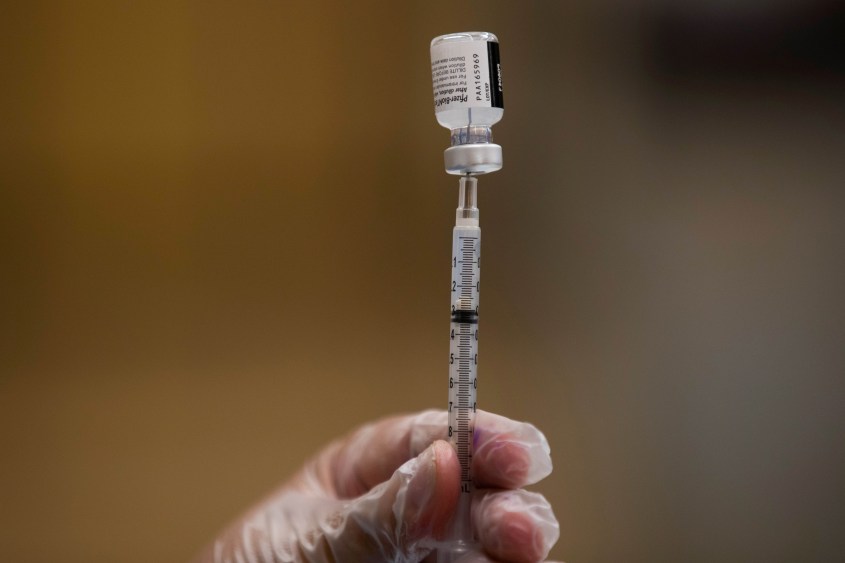In what could be a dramatic twist to the planned rollout of the United States’ booster shot program, two leading vaccine reviewers at the Food and Drug Administration were among a group of experts who wrote that booster shots were not yet necessary.
The two FDA experts are Drs. Phil Krause and Marion Gruber. They recently announced they would be stepping down from the FDA this fall.
They joined 16 other leading vaccine researchers in the U.S., Britain, France, South Africa and India, as well as scientists with the World Health Organization, to write an opinion piece published Monday.
They concluded the shots are working well despite the extra-contagious delta variant, especially against severe disease. After reviewing worldwide studies regarding vaccine performance began surging, the team concluded “none of these studies has provided credible evidence of substantially declining protection against severe disease.”
The experts suggest it would be better to create booster shots that better match circulating variants, similar to what happens every year with the flu vaccine, rather than just giving extra doses of the original vaccine.
“There is an opportunity now to study variant-based boosters before there is widespread need for them,” the experts wrote.
The U.S. already offers an extra dose of the Pfizer or Moderna vaccines to people with severely weakened immune systems. For the general population, the debate is boiling down to whether boosters should be given to block milder “breakthrough” infections among the fully vaccinated.
In the opinion piece, the experts concluded “reductions in vaccine efficacy against mild disease do not necessarily predict reductions in the efficacy against severe disease.” They went on to write “even in populations with fairly high vaccination rates, the unvaccinated are still the major drivers of transmission”.
The White House’s plan to begin rolling out boosters later this month would only happen if both the FDA and Centers for Disease Control and Prevention agree. Advisers to the FDA will weigh evidence about an extra Pfizer shot Friday at a key public meeting.
 FILE PHOTO: A nurse fills a syringe with Pfizer vaccine as mobile vaccination teams begin visiting every Los Angeles Unified middle and high school campus to deliver first and second doses of the coronavirus disease (COVID-19) vaccines in Los Angeles, California, U.S., August 30, 2021. REUTERS/Mike Blake/File Photo
FILE PHOTO: A nurse fills a syringe with Pfizer vaccine as mobile vaccination teams begin visiting every Los Angeles Unified middle and high school campus to deliver first and second doses of the coronavirus disease (COVID-19) vaccines in Los Angeles, California, U.S., August 30, 2021. REUTERS/Mike Blake/File Photo
 FILE PHOTO: A nurse fills a syringe with Pfizer vaccine as mobile vaccination teams begin visiting every Los Angeles Unified middle and high school campus to deliver first and second doses of the coronavirus disease (COVID-19) vaccines in Los Angeles, California, U.S., August 30, 2021. REUTERS/Mike Blake/File Photo
FILE PHOTO: A nurse fills a syringe with Pfizer vaccine as mobile vaccination teams begin visiting every Los Angeles Unified middle and high school campus to deliver first and second doses of the coronavirus disease (COVID-19) vaccines in Los Angeles, California, U.S., August 30, 2021. REUTERS/Mike Blake/File Photo










